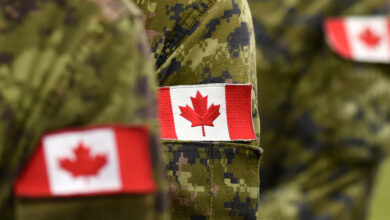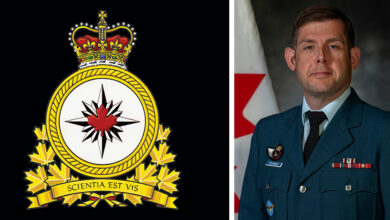Policy
CAF Sexual Misconduct Report reveals decrease in sexual misconduct incidents
The number of sexual misconduct incidents has decreased in recent years, according to a new report released by the Canadian Armed Forces (CAF).
According to the 2019 Sexual Misconduct Incident Tracking Report, the number of sexual misconduct incidents reported has dropped from 461 in 2016 to 302 in 2017.
However, sexual assaults do not follow this same downward trend. The incidents of sexual assaults reported were lowest in 2016, the highest in 2017, and fall in between in 2018. This could indicate that CAF members may feel more comfortable to come forward and report incidents.
“Our collective efforts are beginning to yield results. While we will need more data before we can identify trends with any certainty, the 2018 Statistics Canada Survey of Sexual Misconduct in the CAF indicates that members are witnessing and experiencing less sexualized and discriminatory behaviour, and the decline in overall reported incidents in this report backs up those findings,” said Commodore Rebecca Patterson, director-general, professional military conduct—Operation HONOUR.
The most-reported sexual misconduct incident remains sexual assault.
The report analyzes incidents reported from 2016 through the 2018-2019 fiscal year through the Operation HONOUR Tracking and Analysis System (OPHTAS).
“Since the launch of Operation HONOUR in 2015, we have taken significant steps to fully understand the scope and nature of sexual misconduct within our ranks. Over the past three years, the CAF has significantly increased its capacity to collect and track data specifically related to sexual misconduct incidents,” said Patterson in a statement issued this week.
This new report also confirms that the majority of complaints were females that were junior non-commissioned members.
Additionally, personal residents or quarters is reported as the location where an incident of sexual misconduct is most likely to happen. Other areas include civilian establishments or while away on course or training. Places, where incidents are least likely to occur, are at the unit at work, while deployed or while on a field exercise.
The report also covered the consequences perpetrators faced.
According to the report, since 2016, ten people were removed from command permanently; 31 members were removed from supervisory positions permanently, and 12 were removed from instructional duties permanently.
In addition, in 2016 there were 19 summary trials compared to 21 the following year. There were 22 findings of guilty in 2016 and 18 in 2017. Punishments handed down included a reduction in rank, reprimands, and fines ranging from $100 to $2500.
“When Operation HONOUR launched in 2015, the CAF committed to regularly reporting on its actions to address sexual misconduct. Although progress has been made, it takes time to build trust and achieve lasting results—this issue is deeply rooted in society and present in a wide range of organizations. As we further analyze the data in this report to inform and focus our efforts to address sexual misconduct, we will continue to be open with members and Canadians about our actions,” commented Patterson.
Prior to 2015, the CAF had no central database in which to record all cases of sexual misconduct. Since Jan. 2018, however, through OPHTAS, the chain of command can report incidents of sexual misconduct. The system includes any incident reported after April 1, 2016, no matter the time of its occurrence.
OPHTAS tracks not only CAF members but also incidents reported by DND civilians.
The chain of command is required to enter all incidents of sexual misconduct into OPHTAS within 48 hours of the incident being reported.
“The system, which is now in use across the CAF, represents a key step towards establishing a comprehensive and systematic approach to data collection and analysis of sexual misconduct incidents—from initial reporting to case closure. It allows the chain of command to better understand and respond to incidents and trends within their areas of responsibility, and it helps to ensure those who are affected by sexual misconduct are kept informed throughout the entire process of their case,” said Patterson.









